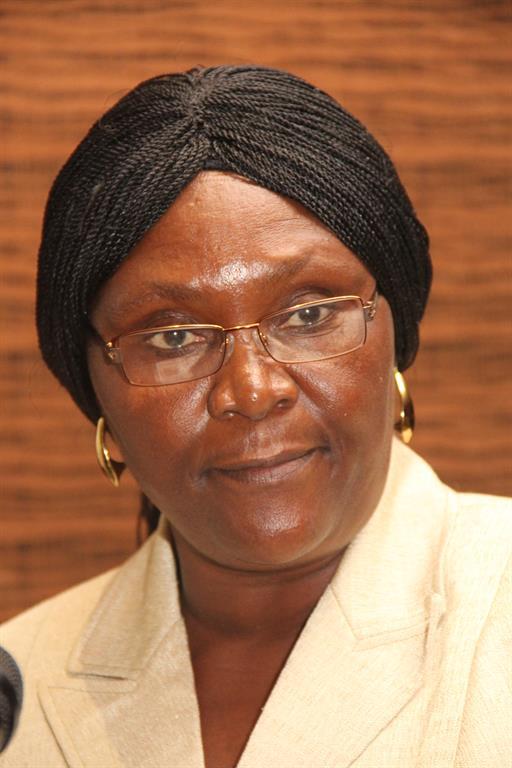Gustavo bail: CRAN weighs in on GPS
Comedy of errors over proposed tracking device CRAN, ACC and the PG have all indicated that they have no legal means to implement Judge Herman Oosthuizen’s order that a GPS device be fitted to the Fishrot accused who was granted bail in December.JEMIMA BEUKES
WINDHOEKThe communications regulatory agency, CRAN, says it does not control the fitting of tracking devices to human beings, thus throwing a recent High Court ruling into further jeopardy.
High Court Judge Herman Oosthuizen, in a 15 December ruling, granted Fishrot accused Ricardo Gustavo bail on a number of conditions, including that the Namgomar Pesca director be fitted with a GPS tracking device to monitor his movements.
Gustavo had proposed the idea in court during his bail hearing, saying he was prepared to pay for the device himself.
Prosecutor-General Martha Imalwa, who has filed an appeal against Gustavo’s bail, said the court misdirected itself because there is no law permitting fitting persons with GPS trackers.
Communications Regulatory Authority of Namibia (CRAN) CEO Emilia Nghikembua said the agency does not regulate the fitting of GPS devices to monitor individuals.
“CRAN however regulates the type approval of GPS devices in terms of Section 80 of the Communications Act. This requirement is applicable to all telecommunications equipment that connects to electronic communications networks in Namibia,” she told Namibian Sun this week.
“Therefore, in order for GPS devices to be imported into Namibia, CRAN will evaluate the technical standards to ensure conformance to prescribed specifications, by issuing a type approval certificate, but does not regulate the intended use of the device,” she said.
PG Imalwa said the High Court was ‘swayed’ by Gustavo’s offer to have him fitted with a GPS device while fully aware that no legal framework exists that provides for the use of GPS devices to track suspects.
“There is no legal framework that provides for the use of such GPS monitoring devices in Namibia and, more so, the honourable judge did not even identify the type of GPS device, or by whom and how it should be determined that it can be effectively put to use in Namibia.”
What the law says
According to Section 80 of the Communications Act, CRAN may prescribe categories of telecommunications equipment for which type approval is required before it is sold or put into use in Namibia, to ensure against harm to public health and safety or to electronic telecommunications networks.
It also stipulates that CRAN may seize any telecommunications equipment that does not comply with any standard prescribed under this section or that belongs to a category of telecommunications equipment for which type approval is required as contemplated in subsection (3) and that has not been approved as contemplated in that subsection.
GPS constitutional crisis
The Anti-Corruption Commission (ACC) this week said it finds itself in a ‘constitutional crisis’ because of the court ruling, as Gustavo “cannot be tracked like an animal”.
When he granted Gustavo bail last month, Judge Oosthuizen permitted the State, at its own cost, to affix a personal GPS device to Gustavo’s wrist or ankle in order to monitor his movements around the clock.
It was also ordered that the same GPS devices, at the cost of the State, would be affixed to the vehicles at Gustavo’s disposal while he is out on bail.
ACC investigator Phelem Masule confirmed that the court order regarding the GPS device has not been honoured because it would violate the Namibian Constitution as well as Gustavo’s rights.
[email protected]
WINDHOEKThe communications regulatory agency, CRAN, says it does not control the fitting of tracking devices to human beings, thus throwing a recent High Court ruling into further jeopardy.
High Court Judge Herman Oosthuizen, in a 15 December ruling, granted Fishrot accused Ricardo Gustavo bail on a number of conditions, including that the Namgomar Pesca director be fitted with a GPS tracking device to monitor his movements.
Gustavo had proposed the idea in court during his bail hearing, saying he was prepared to pay for the device himself.
Prosecutor-General Martha Imalwa, who has filed an appeal against Gustavo’s bail, said the court misdirected itself because there is no law permitting fitting persons with GPS trackers.
Communications Regulatory Authority of Namibia (CRAN) CEO Emilia Nghikembua said the agency does not regulate the fitting of GPS devices to monitor individuals.
“CRAN however regulates the type approval of GPS devices in terms of Section 80 of the Communications Act. This requirement is applicable to all telecommunications equipment that connects to electronic communications networks in Namibia,” she told Namibian Sun this week.
“Therefore, in order for GPS devices to be imported into Namibia, CRAN will evaluate the technical standards to ensure conformance to prescribed specifications, by issuing a type approval certificate, but does not regulate the intended use of the device,” she said.
PG Imalwa said the High Court was ‘swayed’ by Gustavo’s offer to have him fitted with a GPS device while fully aware that no legal framework exists that provides for the use of GPS devices to track suspects.
“There is no legal framework that provides for the use of such GPS monitoring devices in Namibia and, more so, the honourable judge did not even identify the type of GPS device, or by whom and how it should be determined that it can be effectively put to use in Namibia.”
What the law says
According to Section 80 of the Communications Act, CRAN may prescribe categories of telecommunications equipment for which type approval is required before it is sold or put into use in Namibia, to ensure against harm to public health and safety or to electronic telecommunications networks.
It also stipulates that CRAN may seize any telecommunications equipment that does not comply with any standard prescribed under this section or that belongs to a category of telecommunications equipment for which type approval is required as contemplated in subsection (3) and that has not been approved as contemplated in that subsection.
GPS constitutional crisis
The Anti-Corruption Commission (ACC) this week said it finds itself in a ‘constitutional crisis’ because of the court ruling, as Gustavo “cannot be tracked like an animal”.
When he granted Gustavo bail last month, Judge Oosthuizen permitted the State, at its own cost, to affix a personal GPS device to Gustavo’s wrist or ankle in order to monitor his movements around the clock.
It was also ordered that the same GPS devices, at the cost of the State, would be affixed to the vehicles at Gustavo’s disposal while he is out on bail.
ACC investigator Phelem Masule confirmed that the court order regarding the GPS device has not been honoured because it would violate the Namibian Constitution as well as Gustavo’s rights.
[email protected]






Comments
Namibian Sun
No comments have been left on this article